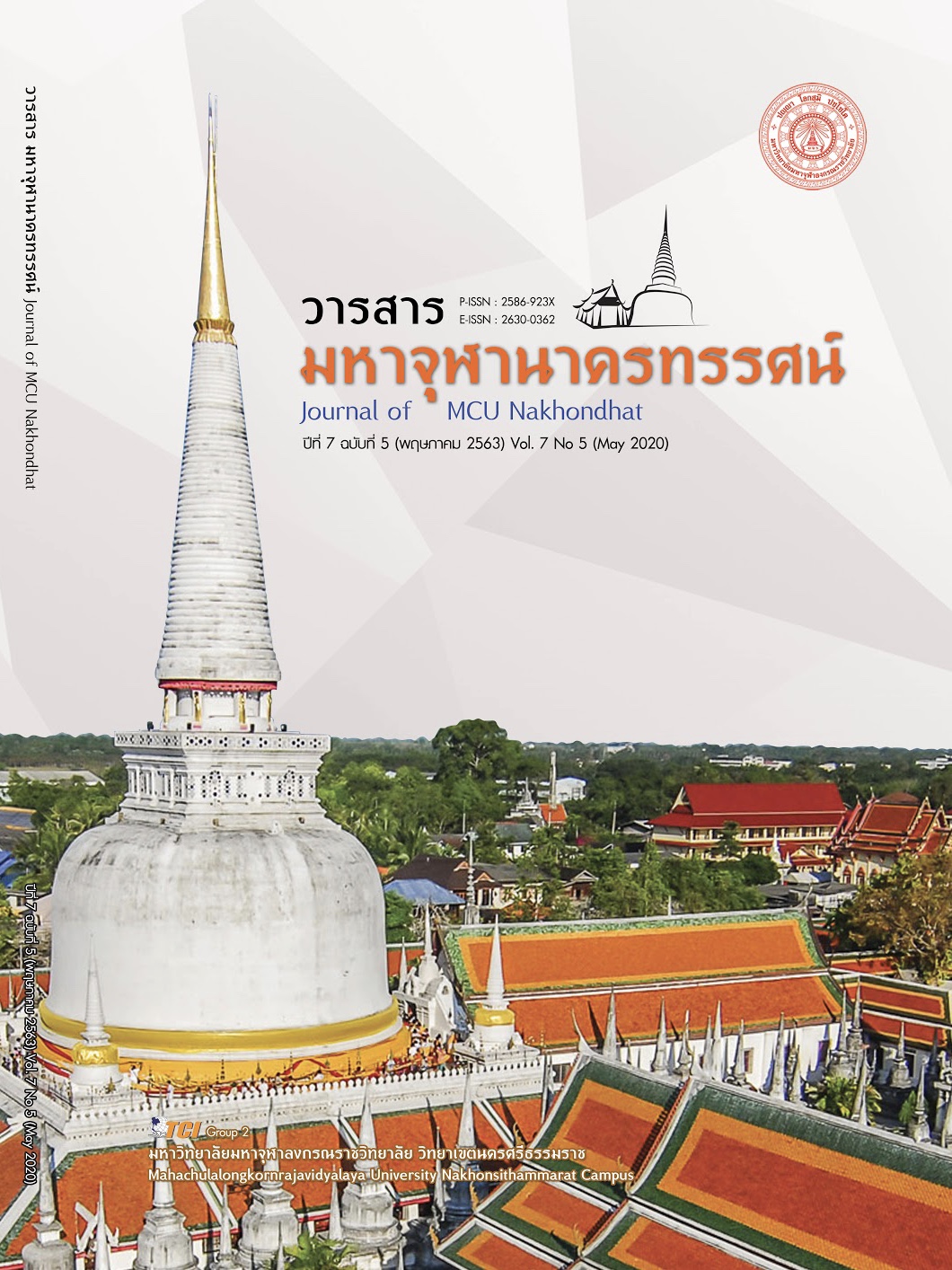LAW ENFORCEMENT AND HUMAN RIGHTS PRINCIPLES FOR POLICE COMMISSIONERS AT SURAT THANI POLICE STATION
Main Article Content
Abstract
The objectives of this article were to study characters and problems, and to suggest the problem solving solutions in the law enforcement and human rights principles for police commissioners at Surat Thani police station. There were three steps in this study: 1) to study documents related to law enforcement and human rights principles in order to determine the conceptual framework in this study., 2) to explore characters, problems and suggestions in law enforcement and human rights principles from the field survey. In the quantitative research, I could get the results from 399 people and 156 police commissioners. Most of them were men in the age of 41 – 59 years old. About 218 of them graduated diploma, and 368 of them had lived in Surat Thani more than one year. From the police commissioner group, the findings in their opinions in the law enforcement and human rights principles indicated that wearing uniforms in accordance with regulations in high level score and overview was in medium level score. In the qualitative research, the sample group was 15 persons (people and police commissioners). The findings revealed that in arresting, police officers complied with criminal procedure code and held to human rights principles according to law regulation strictly by considering the value of people in their humanity, the equality, and being verified with the rule of law. In using force, weapon, and other equipment, the police officers can use them when it’s necessary and based on the rules from light to heavy, the equality in the international standards., (3) The findings showed that police officers have to build the faith and the trust, and the good relationship with people, encourage and educate about law in the police officers’ instruction in all courses. The supervisors don’t discriminate, don’t base on the patronage system and don’t be afraid of influential people.
Article Details
References
ชาคริต ขันนาโพธิ์. (2556). ทัศนคติต่อการบังคับใช้พระราชบัญญัติจราจรทางบกในจังหวัดมหาสารคาม: กรณีศึกษานิสิตมหาวิทยาลัยมหาสารคาม. วารสารมนุษยศาสตร์และสังคมศาสตร์ มหาวิทยาลัยมหาสารคาม, 3(5), 106-118.
พิเชษฐ พิณทอง. (2554). การใช้อำนาจเกินหน้าที่ของตำรวจ: ผลกระทบด้านสิทธิมนุษยชน. วารสารกระบวนการยุติธรรม, 4(1), 33-46.
เพ็ญนภา จันทร์แดง. (2552). การแทรกแซงสื่อมวลชนเพื่อผลทางการเมือง: ศึกษาเปรียบเทียบรัฐบาล พ.ต.ท.ทักษิณ ชินวัตร กับรัฐบาลนายอภิสิทธิ์ เวชชาชีวะ. วารสารศรีปทุม ปริทัศน์ ฉบับมนุษยศาสตร์และสังคมศาสตร์, 9(2), 89-90.
วันชัย ศรีนวลนัด. (2552). ความสำคัญของสิทธิมนุษยชนกับนักกฎหมาย. ใน เอกสารการบรรยายให้ความรู้ผู้เข้ารับการอบรมหลักสูตรการพัฒนานักกฎหมายภาครัฐระดับกลางรุ่นที่ 9. สถาบันพระปกเกล้าร่วมกับสำนักงานคณะกรรมการกฤษฎีกา.
สถาบันพระปกเกล้า. (2548). ข้อเสนอแนะในการแก้ไขปรับปรุงการบริหารงานของเจ้าหน้าที่ตำรวจในการดำเนินคดีอาญาในชั้นสอบสวน. กรุงเทพมหานคร: สถาบันพระปกเกล้า.
สำนักงานคณะกรรมการสิทธิมนุษยชนแห่งชาติ. (2558). คู่มือการปฏิบัติงานของเจ้าหน้าที่ตำรวจตามหลักสิทธิมนุษยชน. (พิมพ์ครั้งที่ 3). กรุงเทพมหานคร: ห้างหุ้นส่วนจำกัดธันวาธุรกิจ.
สำนักงานคณะกรรมการสิทธิมนุษยชนแห่งชาติ. (2562). สถิติเรื่องร้องเรียน. เรียกใช้เมื่อ 11 พฤศจิกายน 2562 จาก http://www.nhrc.or.th/NHRCT-Work/Statistical- information/Statistical-information-on-complaints/Monthly(Year-Now)-(2).aspx
Cronbach, L.J. (1970). Essential of psychology testing. (3 rd ed.) New York : University of Chicago.
Krejcie, R. V., & Morgan, D. W. (1970). Determining Sample Size for Research Activities. Educational and Psychological Measurement, 30(3), 607–610.
Likert, R. A. (1961). New Patterns of Management. New York: McGraw-Hill Book Company Inc.


